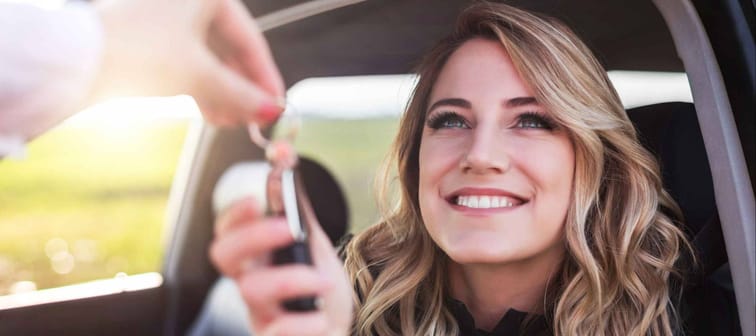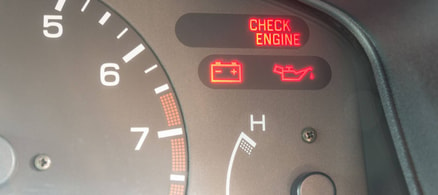In these instances, non-owner car insurance could be your best option — but there are some caveats.
In this guide, we’ll explain exactly what a non-owner car insurance policy is, who it’s for, and how to find the best deal — so that you’ll know what you’re looking for when you shop around for the policy that fits your needs.
What is non-owner car insurance?
Non-owner car insurance (also known as non-driver’s insurance) is a policy that covers bodily injury and property damage liability when driving someone else’s car.
If you’re at fault (or even partially at fault) in an accident, non-driver’s insurance protects you financially for the damage you cause to another person’s vehicle, property, or body. What does non-owner car insurance cover?
Unlike traditional car insurance, a non-owner car insurance policy is not linked to a specific vehicle. It’s linked to you.
That means that it only protects you from being liable for damage done to others. It does not include comprehensive or collision coverage that would normally pay for damage to the vehicle you are driving.
In addition to liability coverage, a non-owner insurance plan may also include:
- Personal injury protection (PIP) coverage: This covers your injury-related expenses if you live in a no-fault state (no matter who is at fault).
- Uninsured or underinsured motorist coverage: This covers your injury-related expenses when another uninsured (or underinsured) driver is at fault.
- Rental car liability coverage: This covers you if you were to injure or damage someone’s property in a rental car.
If these terms look foreign to you, check out our beginner’s guide to how car insurance works.
Non-owner auto insurance is considered a secondary policy that will kick in after the vehicle’s primary policy has exhausted its coverage. Because of this, there is normally no deductible.
Stop overpaying for home insurance
Home insurance is an essential expense – one that can often be pricey. You can lower your monthly recurring expenses by finding a more economical alternative for home insurance.
SmartFinancial can help you do just that. SmartFinancial’s online marketplace of vetted home insurance providers allows you to quickly shop around for rates from the country’s top insurance companies, and ensure you’re paying the lowest price possible for your home insurance.
Explore better ratesWho should buy non-owner’s car insurance?
Now that you understand what non-owner’s car insurance is, let’s look at common scenarios where it can be useful.
You rent cars often
Non-owner insurance can save you money if you use rental cars regularly. For example, if rental insurance runs you $20 per day, and you rent cars 40 days per year, that’s $800 in rental car insurance. Depending on your driving record and the state you live in, non-owner auto insurance could be significantly less than this.
If you go this route, be sure that your non-owner policy actually includes rental car liability coverage. And if your credit card doesn’t cover rental collision insurance, you’ll want to buy a collision damage waiver from the rental company as well. This will cover damage to the rental car if you are at fault in an accident.
You borrow cars regularly
When you borrow someone’s car, you will normally be covered by their primary auto insurance coverage. The problem is, they might only have minimal coverage. If, for example, they only have $20,000 in liability insurance and you cause $50,000 in damage in an accident—you’ll be on the hook for that extra $30,000.
With non-owner auto insurance, you’ll know you’re covered no matter how much insurance the car’s owner purchased.
That said, there are two main exceptions:
- If you have your own car, the liability coverage on your vehicle will usually cover you in other vehicles as well.
- If you live with the car’s owner, non-owner insurance may not cover you.
You use a car-sharing service
Normally, car-sharing services like Zipcar only offer the minimum required liability insurance. Minimum coverage requirements vary by state, but they are never sufficient to cover a serious accident requiring extensive medical bills.
By purchasing a non-owner policy, you can protect yourself with higher coverage limits.
You won’t be driving for an extended period
Car insurance companies don’t like to see gaps in coverage. If you have gaps, they may consider you a riskier driver and increase your rates when you try to buy coverage in the future. If you decide to sell your car or won’t be driving for an extended period of time, purchasing non-owner insurance allows you to avoid these gaps.
You drive a company car for personal errands
Insurance coverage for employer-owned vehicles can get complicated. In general, if you’re driving for work-related errands, you should be covered by your company’s insurance. But if you cause an accident when you’re off the clock — even if it’s commuting to and from work—you may be liable.
Personal car insurance policies often exclude vehicles used for business purposes. And if this is the case, non-owner auto insurance can fill the coverage gap.
You’re required to file an SR-22 or FR-44
If you’re legally required to file an SR-22 or FR-44 due to traffic infractions, non-owner car insurance may be the best way to do it (and if you don’t own a car, it may be the only way to do it).
These documents prove that you carry the minimum required liability coverage and must be filed by an insurance company. In most cases, premiums for a non-owner SR-22 policy will be cheaper than those of a traditional auto insurance policy.
Who should skip non-driver’s insurance?
Just because you borrow other people’s vehicles doesn’t necessarily mean a non-driver’s insurance policy is right for you. Here are a few instances in which you’d want to skip it.
You borrow a car from someone you live with
Normally, non-owners insurance is perfect if you frequently drive other people’s cars. The exception is if you live with the car’s owner.
Let’s say your father lives with you and occasionally lends you his truck. Instead of non-owner coverage, it’s best to simply add yourself as a driver on his primary auto insurance policy. If you cause an accident in his truck, a non-driver’s insurance policy may not cover you.
You only buy minimum coverage
Remember, non-owner auto insurance is secondary coverage.
If the car’s owner only has $30,000 of bodily injury liability coverage, and you purchase a non-owner’s policy with $250,000 of coverage — that would make sense. In an at-fault accident, the owner’s primary plan would cover the first $30,000, and your plan would kick in to protect you for an additional $220,000. It’s important to understand that the first $30,000 in primary coverage would cancel out the first $30,000 in the secondary coverage. The two policies overlap.
So, on the other hand, if the car you typically borrow has $50,000 of liability coverage, and you buy a non-owner’s policy for $50,000 — that wouldn’t do you any good. A non-owner policy will only help you if the coverage is greater than any eligible primary insurance.
You don’t borrow cars often
As mentioned, when borrowing a car, the vehicle’s primary policy should cover you in most cases. Even with minimum coverage, if you’re only borrowing a car once in a blue moon, the odds of causing a serious accident are low.
In the end, it’s a calculated risk. Unless you are a horribly reckless driver, bumping up the coverage for a few drives probably isn’t worth it.
Stop overpaying for home insurance
Home insurance is an essential expense – one that can often be pricey. You can lower your monthly recurring expenses by finding a more economical alternative for home insurance.
SmartFinancial can help you do just that. SmartFinancial’s online marketplace of vetted home insurance providers allows you to quickly shop around for rates from the country’s top insurance companies, and ensure you’re paying the lowest price possible for your home insurance.
Explore better ratesHow to buy a non-owner car insurance policy
Compared to traditional auto insurance, buying a non-owner policy is a bit of a hassle. Most companies don’t offer quotes online, so you’ll have to pick up the phone and do things the old-fashioned way.
To save you time, here are phone numbers to some of the most popular insurance companies:
- GEICO: 800-207-7847
- Progressive: 1-800-776-4737
- State Farm: 800-782-8332
- Nationwide: 1-877-669-6877
- Farmers: 1-888-327-6335
- Liberty Mutual: 1-800-295-2820
- Travelers: 1-866-249-5564
- The General: 1-800-280-1466
- Dairyland: 251-424-1217
- Titan: 1-800-771-7758
- Acceptance: 877-405-7102
- American Family: 800-692-6326
- Direct Auto Insurance: 877-463-4732
Keep in mind that some providers only offer non-owner car insurance in certain states, so you may have to call several companies, which — as you’ll soon see — is a smart thing to do anyway.
Once on the line, getting a quote is easy. You’ll just need to provide some basic personal information, your driver’s license number, and a payment method.
After you purchase a plan, you will receive your proof of coverage in the mail (and often via email as well). If you need an SR-22, make sure to ask them to file it for you.
How to save money on your non-owner liability policy
The cost of your non-owner liability policy will depend on:
- Your driving record
- Your coverage limit
- Your driving frequency
- The zip code you live in
- Whether you need an SR-22
The key to getting the best deal possible is to price shop.
By taking a little time to gather quotes from several different insurance companies, you could shave hundreds of dollars off your annual premium.
Sponsored
Unexpected vet bills don’t have to break the bank
Life with pets is unpredictable, but there are ways to prepare for the unexpected.
Embrace Pet Insurance offers coverage for treatment of accidents, illnesses, prescriptions drugs, emergency care and more.
Plus, their optional wellness plan covers things like routine vet trips, grooming and training costs, if you want to give your pet the all-star treatment while you protect your bank account.







